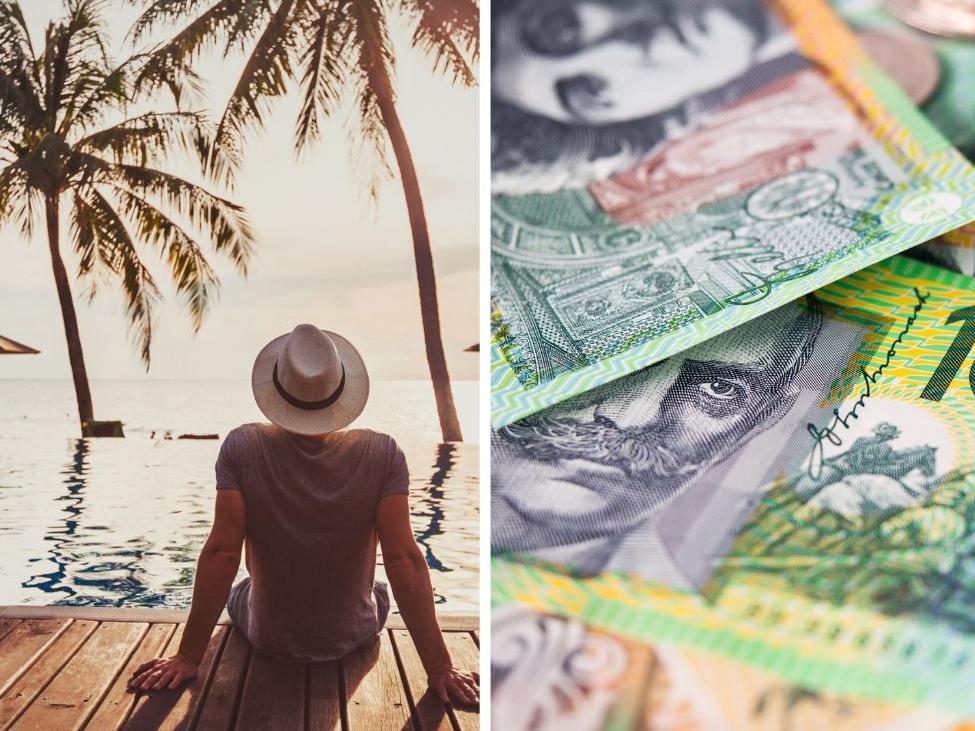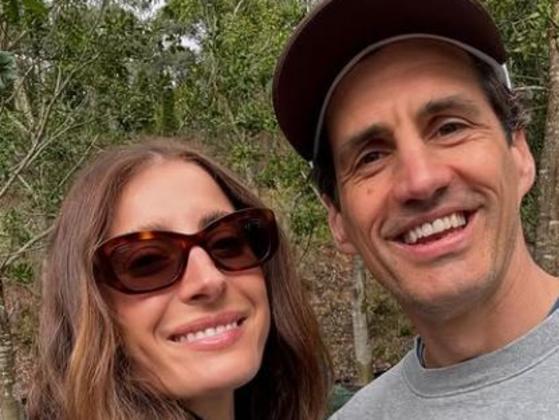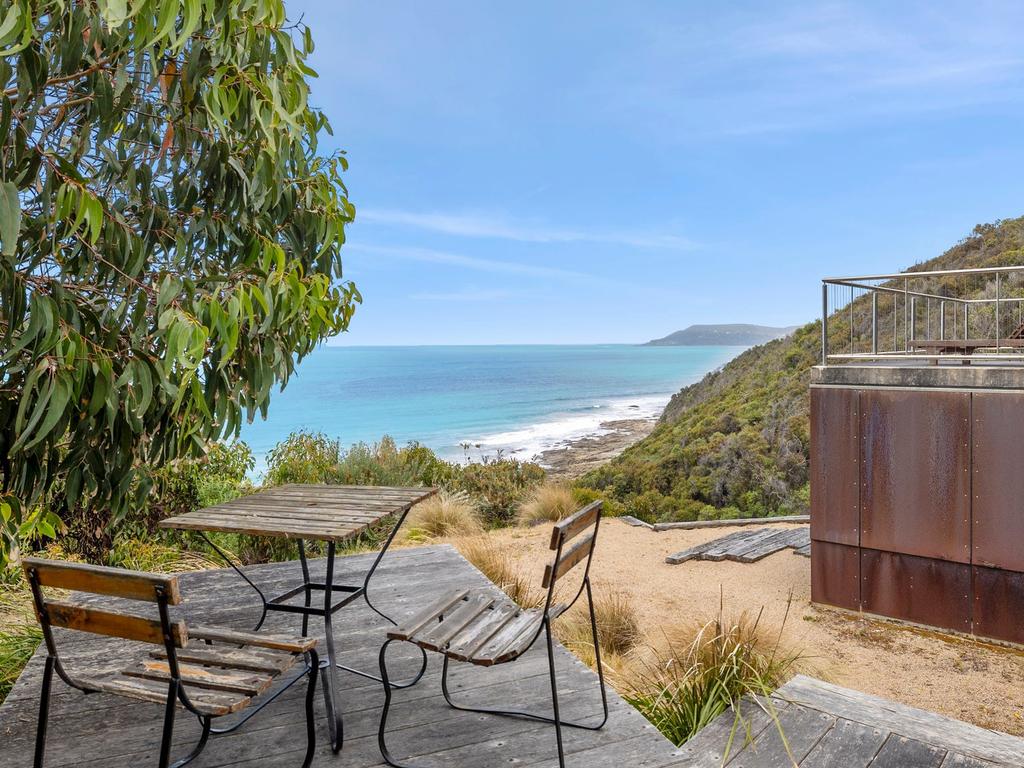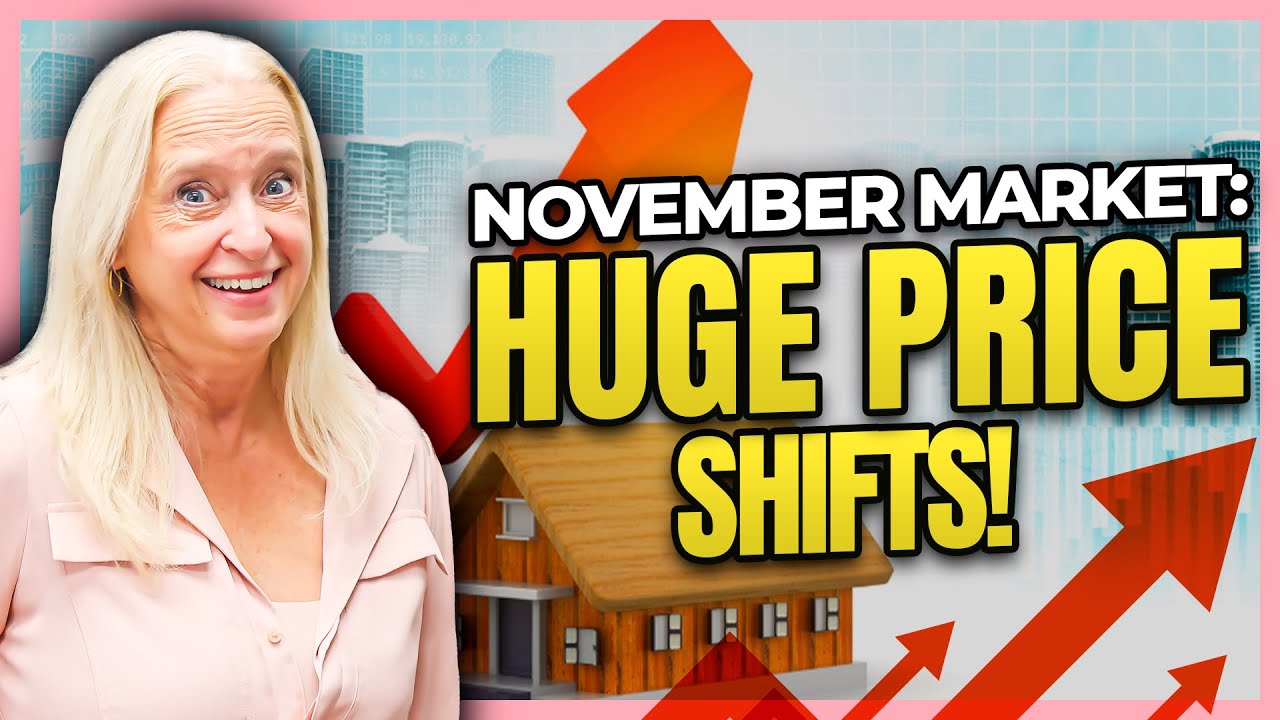
Households with anywhere from $100,000-$120,000 in savings would be “below average” savers in many not so affluent suburbs as new data reveals a growing cash divide across the country.
The Betashares study showed Aussies in some areas have hoarded eye-watering amounts of spare cash averaging over $200,000.
Experts said these households were able to squirrel away these amounts not so much because of higher incomes but because they purchased their homes in previous decades.
Purchasing a home back when housing costs relative to pay were more affordable meant these households had more of their income left over to save or potentially invest.
It’s a sharp contrast to those who purchased homes or rented in more recent years when housing costs demanded a much higher share of income, crippling people’s ability to save.
MORE: Turnbull’s private $150m home revealed
Morgan Milton and her family are trying to save and invest more but high housing costs make it difficult. Picture: Sam Ruttyn
MORE: Worst hit electorates in Albo-era crisis
Betashares CEO Alex Vynokur said the data showed the households with the most freed up cash were not always the wealthiest earners. It’s “places you might not expect”, he said.
“Often people who earn a lot, spend a lot. The lifestyle of wealthy Aussies is not always the lifestyle that necessarily lends itself to a decent savings balance,” he said.
Martin North, analyst at Digital Finance Analytics, which was involved in the research, said housing costs were exacerbating wealth inequalities.
“There are people who are really doing it tough but there are also a huge number of households who are doing extremely well, not just because of their incomes, but because they’re spending less on housing costs and are at a stage of life where they can save more.”
The Betashares research showed that the average amounts households had saved up and ready for a potential investment opportunity varied across states and cities:
QUEENSLAND
+ Qld suburbs with the most spare cash on average
Suburbs where people had more spare cash were not simply the most affluent areas.
MORE: Why Trump win will cost Aussies money
Topping the list, households in Dayboro in the City of Moreton Bay had an average of $217,146 available to spend or invest. A typical house in the rural town north of Brisbane costs $915,000, up 4 per cent over the past year.
The entry-level urban market of Loganholme came in behind with disposable income of $185,991 per household.
NEW SOUTH WALES
+ NSW suburbs where people have most spare cash
Residents in the suburb of Balmain had a lot of extra cash.
MORE: Sydney ‘nude artist’ eyes $12m deal after ex split
The Sydney suburbs where households had the highest average amounts of spare cash – over $200,000 – included Rushcutters Bay and Balmain, according to the data.
Other areas where households tended to be sitting on high amounts of spare cash, averaging from $150,000-$190,000, were Matraville and Kensington, in the southeast, and, in Sydney’s north, Lindfield, Beacon Hill and North Sydney.
Suburbs where households had much less free cash (less than $10,000) tended to be suburbs with ample new housing like Menangle and Strathfield.
VICTORIA
+ Melbourne’s most cashed-up suburbs revealed
Residents in Melbourne’s pricier areas tended to spend a lot more, so their savings were lower.
MORE: Debt traps: suburbs with worst mortgage debt
Postcodes with at least $121,000 saved up include several pockets around the Dandenong Ranges from Olinda to Beaconsfield and Berwick.
Another 25 areas around the state with $100,000-$121,000 available feature the likes of Docklands in the city, Essendon in the north and Plumpton to the west.
The Demographics Group co-founder Simon Kuestenmacher said most people would only have large sums of money in the bank as opposed to invested if they were planning a large purchase. “The bank of mum and dad is the most likely thing.” he said.
SOUTH AUSTRALIA
+ SA suburbs where people have most cash
Adelaide households were full of surprises.
Fullarton households have the highest amount of disposable income – or the greatest spare cash flow – of any SA suburb or town, able to access $195,552.
Unley households came second, able to access $157,391, while Port Lincoln households had the third highest disposable income at $139,716.
MORE: Bold moves that got Albo $8.8m property empire
Average spare cash across households.
Barmera, Glenalta and Hope Valley households were all able to access between $130,000 and $135,000, while Williamstown, Whyalla Playford, Hazelwood Park and Tanunda households could all access more than $100,000 in spare cash flow.
The release of the data followed an announcement by Betashares of no more brokerage fees on ASX trades.






